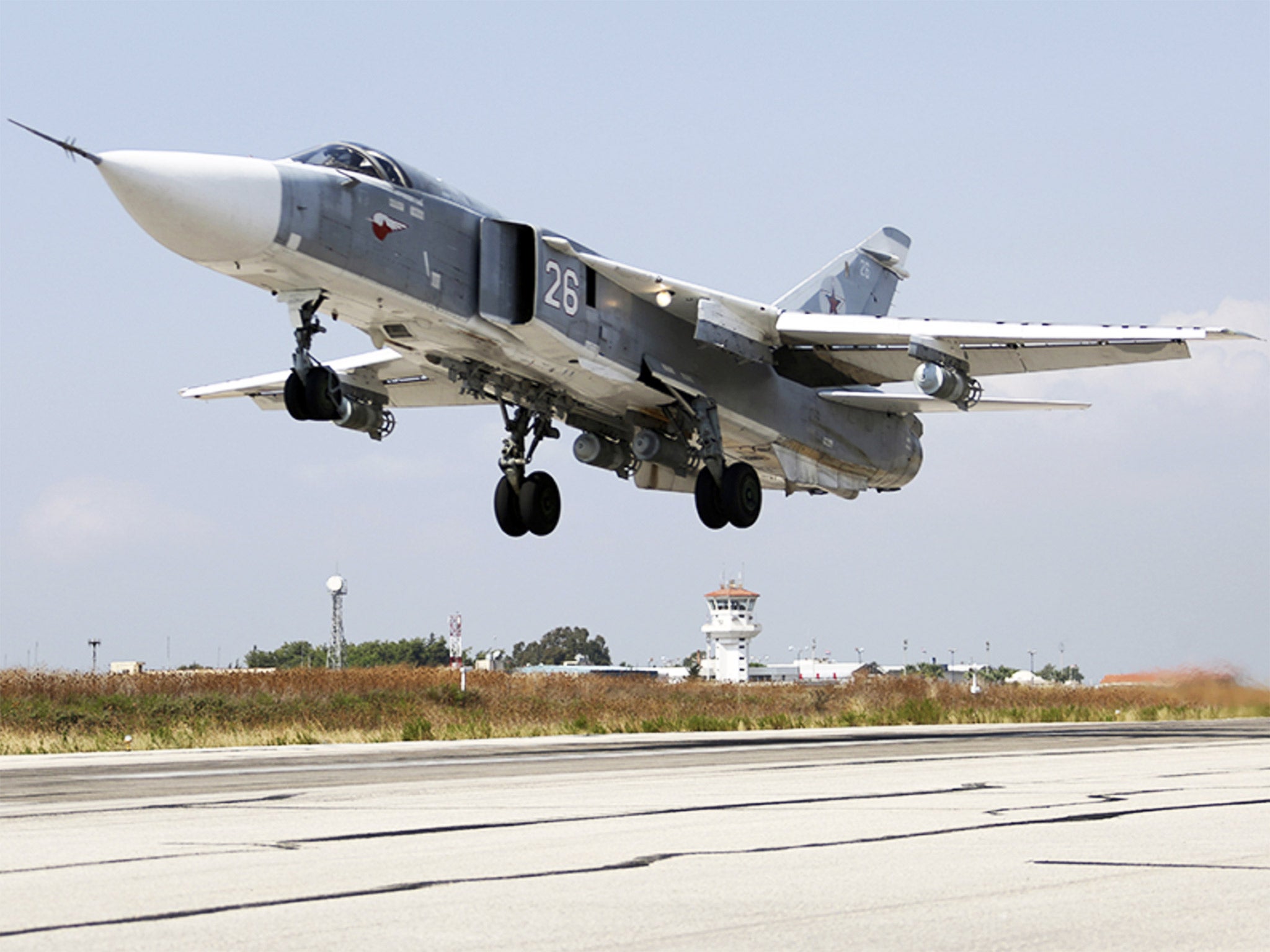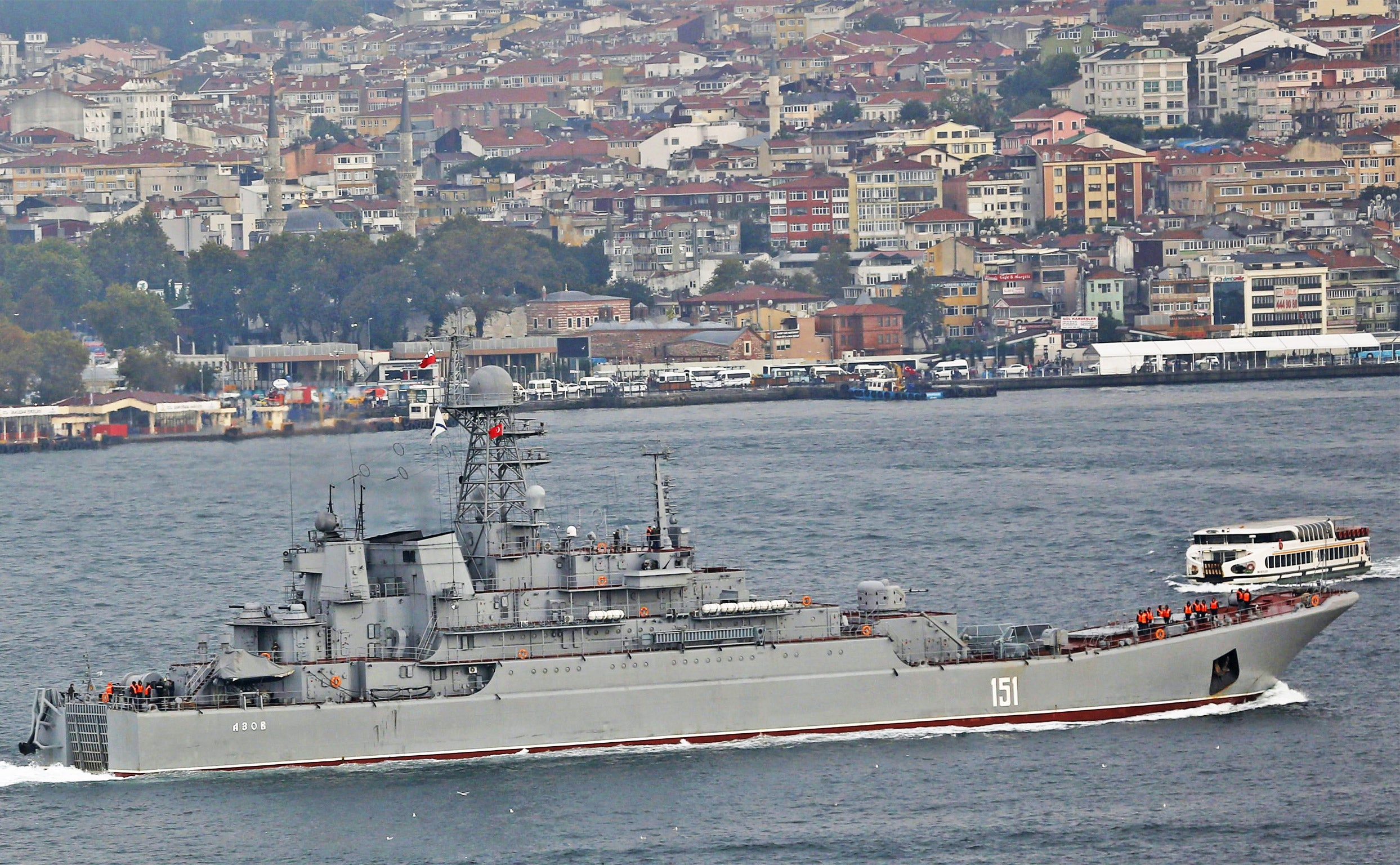Russia in Syria: Russian radar locks on to Turkish fighter jets as Moscow steps up air strikes against opposition targets
Nato Secretary-General says actions are 'very serious - even dangerous' after Turkish military claims eight of its F-16 fighters patrolling the Syrian border had been threatened by a Mig-29 and later by an anti-aircraft missile system

Your support helps us to tell the story
From reproductive rights to climate change to Big Tech, The Independent is on the ground when the story is developing. Whether it's investigating the financials of Elon Musk's pro-Trump PAC or producing our latest documentary, 'The A Word', which shines a light on the American women fighting for reproductive rights, we know how important it is to parse out the facts from the messaging.
At such a critical moment in US history, we need reporters on the ground. Your donation allows us to keep sending journalists to speak to both sides of the story.
The Independent is trusted by Americans across the entire political spectrum. And unlike many other quality news outlets, we choose not to lock Americans out of our reporting and analysis with paywalls. We believe quality journalism should be available to everyone, paid for by those who can afford it.
Your support makes all the difference.Turkey said that radar used by Russian aircraft and its surface-to-air missile systems in Syria locked on to Turkish jets as the Russian air campaign intensifies against opposition targets.
The Turkish military said that eight Turkish F-16 fighters patrolling the Turkish Syrian border had been threatened by a Mig-29 and later by an anti-aircraft missile system. In both cases the threat consisted only of Russian use of radar for a limited period, but the Nato Secretary-General Jens Stoltenberg said that Russian actions were “very serious – even dangerous”. “It doesn’t look like an accident, and we’ve seen two of them over the weekend.”
Meanwhile, Russian air strikes are increasing in number against targets in territory held by Isis. The Syrian Observatory for Human Rights said that in the past 24 hours there were 34 air strikes in Palmyra which was captured by Isis on 22 May. The attacks are said to have killed 15 fighters and destroyed 10 vehicles. Air strikes against Raqqa, the Isis de facto capital in Syria, killed two fighters, while other raids took place north of Aleppo and close to Latakia.
It is still not clear how far Russian air strikes are being launched with the aid of forward air observers on the ground calling in an attacks on precisely identified targets. The US-led air campaign against Isis has been at its most effective when acting in collaboration with the Syrian Kurdish People’s Protection Units (YPG) whose commanders can give the exact co-ordinates of a target. Even so, Isis forces as a whole have not been defeated by the US air campaign, even if they have suffered heavy casualties.

The friction between Russia and Turkey complicates an already highly complicated situation on the Syrian-Turkish border. This is 550-miles long and about half of it is now held by the YPG, which is threatening to move west of the Euphrates River and capture the last Isis border crossing with Turkey at Jarabulus.It might also attack Isis and other Syrian opposition forces north of Aleppo and link up with a Kurdish enclave at Afrin.
A further extension of Syrian Kurdish control, particularly if aided by US air strikes, would be a blow to Ankara. It still maintains a relationship with Jabhat al-Nura, the al-Qaeda affiliate, and the hard-line Sunni Islamic group, Ahrar al-Sham, which had been advancing in Idlib and Latakia, but is coming under Russian air attack.
Whatever Turkey’s intentions in Syria since the start of the uprising in 2011, it was not to see the Syrian Kurds gain control of a band of territory across its southern frontier. A Turkish ground invasion into Syria, though still a possibility, would now be riskier with Russian aircraft operating in areas where Turkey would be most likely to launch an incursion.
The danger for the Turks is that they now have two Kurdish quasi-states, one in Syria and one in Iraq, immediately to the south. Worse, the Syrian-Kurdish one, known to Kurds as Rojava, is run by the Democratic Union Party (PYD) which is effectively the Syrian branch of the Kurdistan Workers Party (PKK) which has been fighting the Turkish state since 1984. Any insurgency by the PKK in Kurdish areas in south-east Turkey in future will be strengthened by the fact that the PKK has a de facto state of its own.
It appears that Turkey’s four-year attempt to overthrow President Bashar al-Assad has failed. It is unclear what Turkish President Recep Tayyip Erdogan can do about this since support from Nato is at this stage purely rhetorical. As for Turkey’s relations with Russia, Mr Erdogan says that any attack on Turkey is an attack on Nato and that “if Russia loses a friend like Turkey with whom it has co-operated on many issues, it will lose a lot.” But in Syria, at least, it appears that it is Turkey that is the loser.
* Russia is ready to consider expanding its air strikes in Iraq if it receives a formal request from Baghdad to do so, a senior Russian politician said. Valentina Matviyenko, head of the Russian parliament’s upper chamber, was quoted by Russian news agencies as saying that “in the case of an appeal to the Russian Federation from Iraq, the leadership will consider the political and military viability of an aerial operation”.
Join our commenting forum
Join thought-provoking conversations, follow other Independent readers and see their replies
Comments